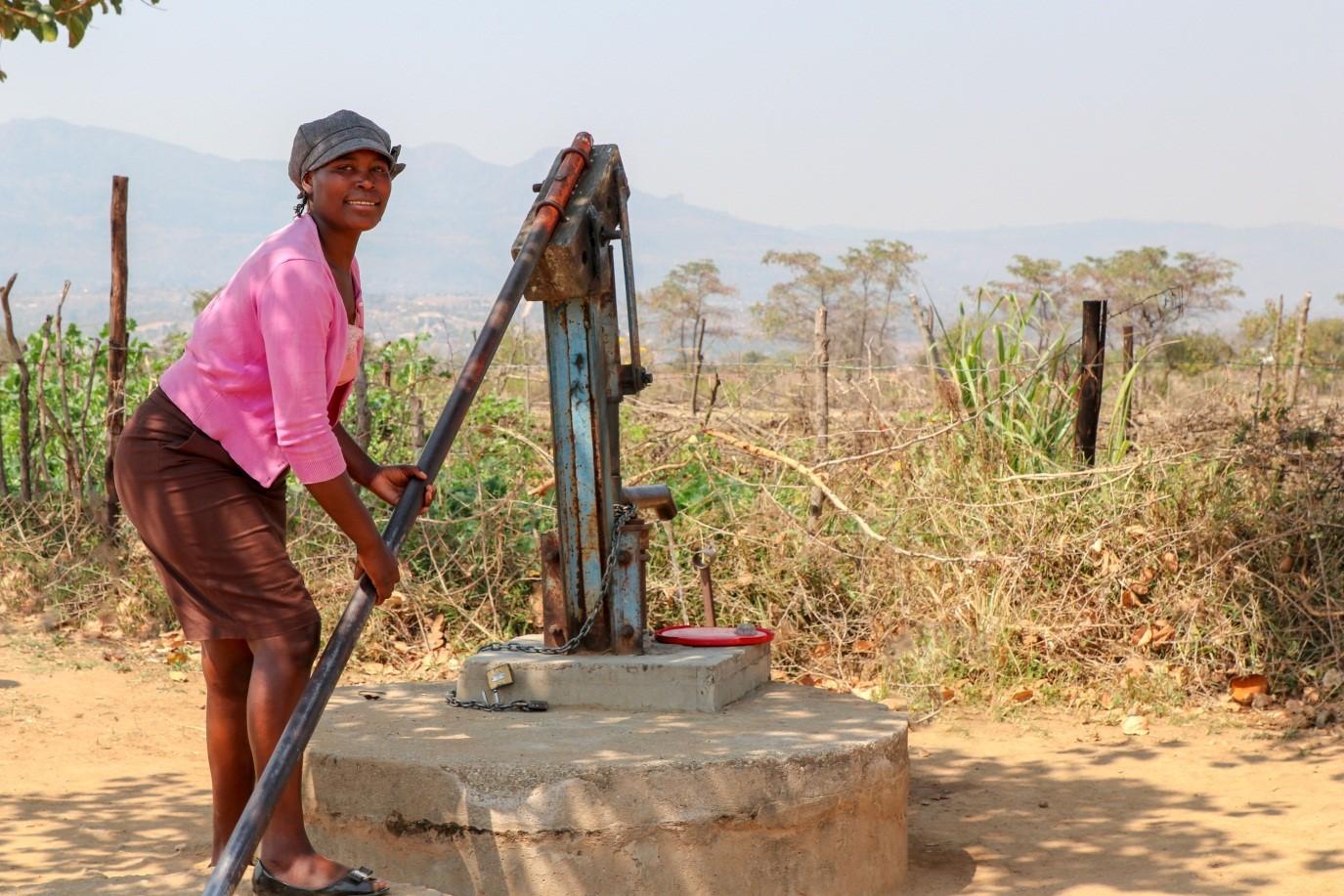

By John Mokwetsi
Martha has repaired 15 boreholes since being trained as a Village Pump Mechanic (VPM) under the Rural Water, Sanitation and Hygiene (WASH) programme.
Mutare, Zimbabwe – Martha Nyagura (26), a mother of two, never finished secondary school education, but is regarded as a superhero in Gombakomba Village in Mutare district, Manicaland Province, Eastern Zimbabwe, because she is the go-to person when it comes to repairing boreholes.
Martha has repaired 15 boreholes since being trained as a Village Pump Mechanic (VPM) under the Rural Water, Sanitation and Hygiene (WASH) programme. That way, she has assisted her community access safe water and helped reduce distances of up to 10 kilometres that villagers used to walk to fetch water. Gombakomba has 11 villages.
Martha said: “On a personal level, being trained as a VPM gave me an income to take care of my family. Secondly, and that is more important,
I have managed to be useful to my community. People used to walk for many kilometres to access water from rivers.
The water was not protected because the same river that gave people water to drink was also used for bathing and washing clothes.”
- Chamisa under fire over US$120K donation
- Mavhunga puts DeMbare into Chibuku quarterfinals
- Pension funds bet on Cabora Bassa oilfields
- Councils defy govt fire tender directive
Keep Reading
She added that UNICEF assisted with spare parts that made it possible for her and two other VPMs to repair the boreholes.
“We still have seven other boreholes that need spare parts and we hope UNICEF will come to our rescue. This is my appeal to them because if we repair those ones, then we improve the situation even more,” Martha said.

Martha is one of the 96 VPMs in Mutare district who are part of the Community Based Management programme, which is a component of the Rural WASH programme aimed at capacitating members of the community to protect, maintain and repair their boreholes. They were trained by the Government of Zimbabwe’s District Development Fund through Care International, a UNICEF implementing partner.
Since 2012, UNICEF has supporting the Government of Zimbabwe, through the Rural WASH programme which is funded by the UK government through the Department of International Development (DFID) and the Swiss Development Corporation, to provide equitable and sustainable access to clean water, improved sanitation and adoption of good hygiene practices among the poor and vulnerable rural population in Zimbabwe. To date, $US52 million has been contributed towards the programme.
As of June 2018, Mutare had repaired 377 out of a target of 467 boreholes, making people like Martha critical for the success of the WASH programme.
Jennifer Dube, a villager in Gombakomba said: “The boreholes had become an eyesore because they just never worked and reminded us of our water problems. I am excited that now we are comfortable with the water we drink and we have access to water and that improves our hygiene.”
Jennifer is also a community informant who benefitted from the launched Rural WASH Information Management System (RWIMS) that allows real time systematic reporting on the status of water and sanitation facilities using the short message service (SMS).
“The new system that allows us to report the state of boreholes and other water sources in real time will improve the reaction to problems in our community. The SMS, that we will send for free, is an easy to use technology and all this coupled with the VPMs that are assisting us is a great stride in the right direction,” Jennifer said.
Leading the wayShadreck Pick, headman of Pickie Village in Gombakomba said he has encouraged the community to take care of the boreholes and report problems using RWIMS.
The headman, who was part of the local training on the operations of the RWIMS technology said: “Empowering women like Martha and also providing water sources that have safe water, is a realisation that a nation needs water to live. Water is life.”
Since the launch of this initiative in November 2017, over 1,100 community informants have been registered to report on the functioning of water, sanitation and hygiene services.











